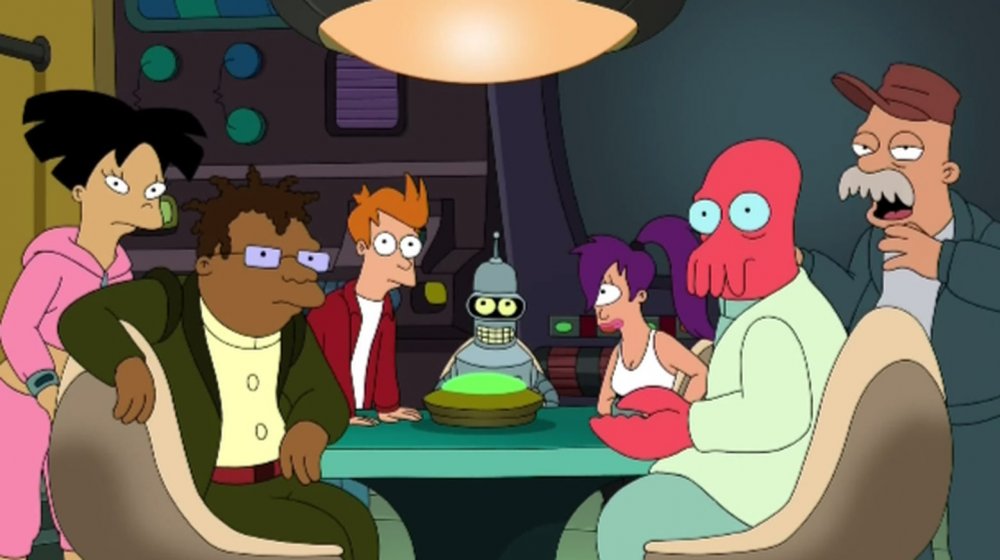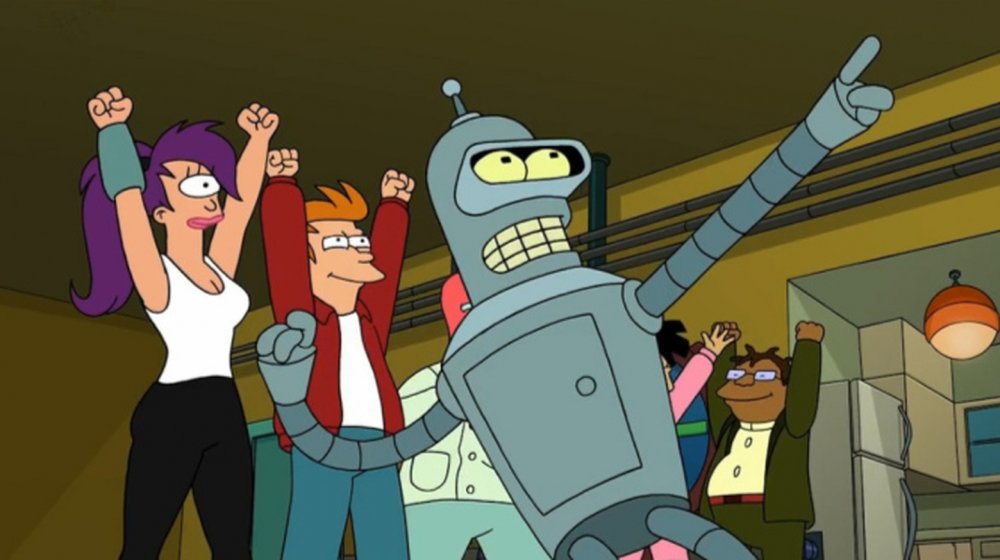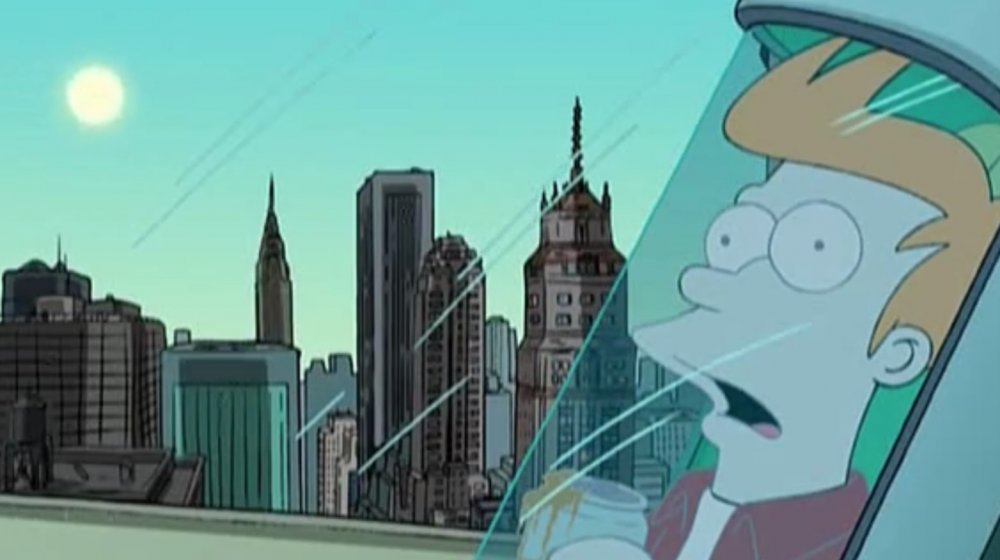How Long Did An Episode Of Futurama Take To Make?
If you're looking for a defunct adult cartoon with a cult following that continues to grow every year, look no further than Futurama. The series started in 1999 under the mastermind behind The Simpsons, Matt Groening, but unlike that program, it met its demise in 2013. Even still, positive fan response to the show has yet to slow down.
That fan dedication almost matches the diligence of the creatives behind the show, who had a long ride ahead of completing even a single episode. On any TV series, there's a ton of work to be done, involving an entire crew to make it all happen. In the case of a cartoon show, the work is much more strenuous and results in more time dedicated to making it come to life. Futurama was no exception, requiring a laborious development period from episode to episode.
In an interview with The Atlantic's Scott Meslow, former Futurama executive producer David X. Cohen discussed his and the team's creative process and broke down in detail what it took to get a story from their imaginations to televisions across the world. As a part of that chat, he also touched on how long it took to put a lone episode together, which may come as a surprise to many casual Futurama fans.
One episode of Futurama takes roughly a calendar year to put together
It took around 365 days to complete an episode of Futurama, start to finish. As Cohen explained to The Atlantic, "It's usually somewhere in the vicinity of a year from the beginning of a Futurama installment to the day when you can see it on TV." There are various avenues an episode needs to take before being considered finished — from the writer's room to the animation studio.
It isn't a quick process and requires so much collaboration between innumerable personnel. Cohen elaborated to The Atlantic on the struggles that came with such a long production schedule, saying, "It's a very long haul, and most of it is taken up by the animation. It all starts with a general discussion — 'What are some stories we haven't done before?'" Cohen and his team were always pushing the boundaries with Futurama and wanted to offer viewers something fresh and new with each adventure, which isn't an easy task, all things considered.
A long production schedule was a major gamble for Futurama
With episodes, and by default, jokes, kept on ice for so long before seeing the light of day, there existed during production a logical fear that all of Cohen's work would be for nothing. Even before the digital age, many gags had a very brief shelf-life and required quick turn-arounds so they'd land with a general audience. Taking a year to get one episode completed wasn't very convenient for Futurama, as Cohen admitted.
"It's such a long feedback loop. We write something, and we don't know what the fans are going to think — or even what we're going to think, when our minds are clear of it and we watch it a year later." Being on the pulse of pop culture is nearly impossible to do properly, as jokes are only fresh for a limited time. Beginning an episode a whole year before it releases is a dangerous game, but Cohen and his Futurama team made it work to great success.


